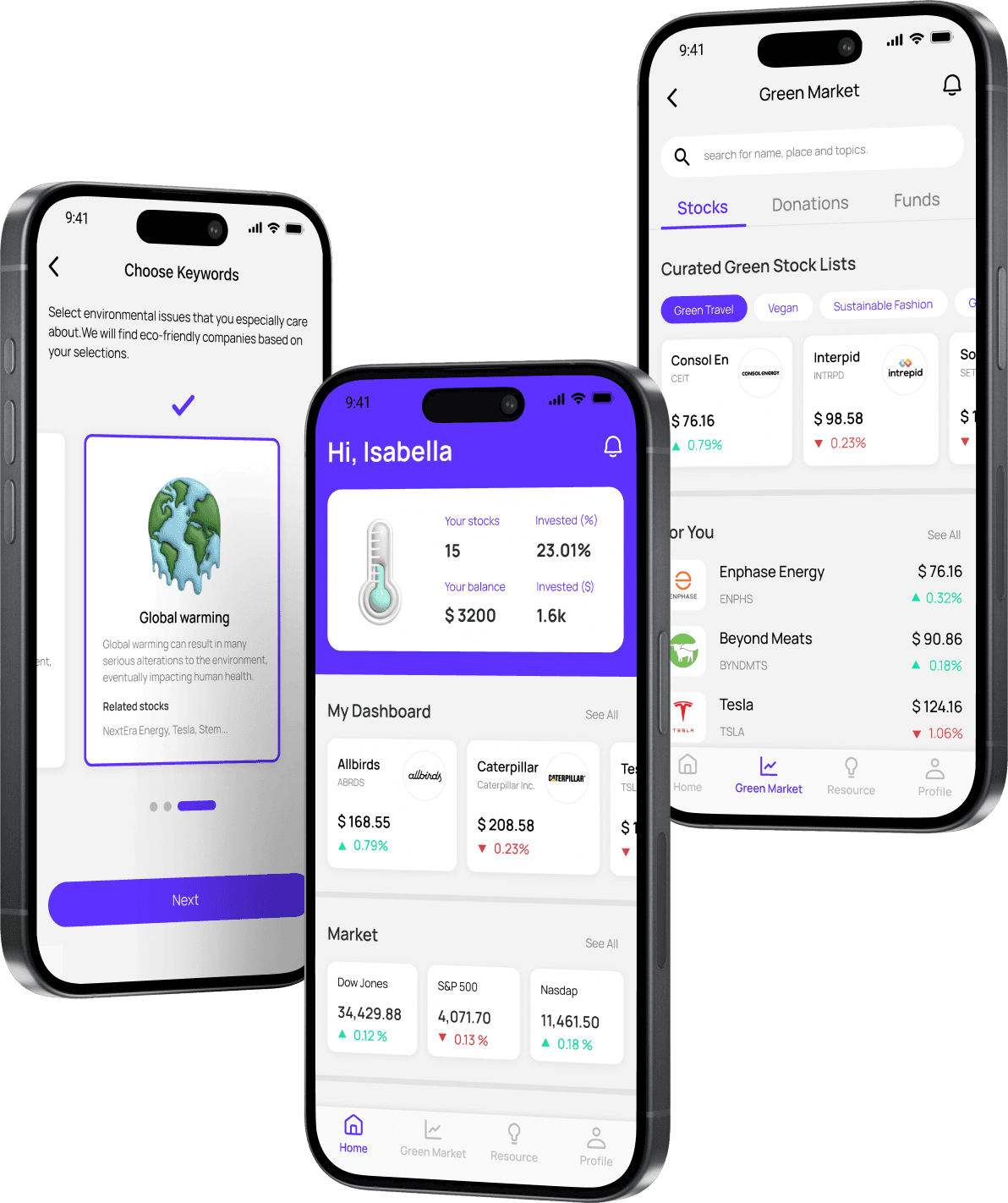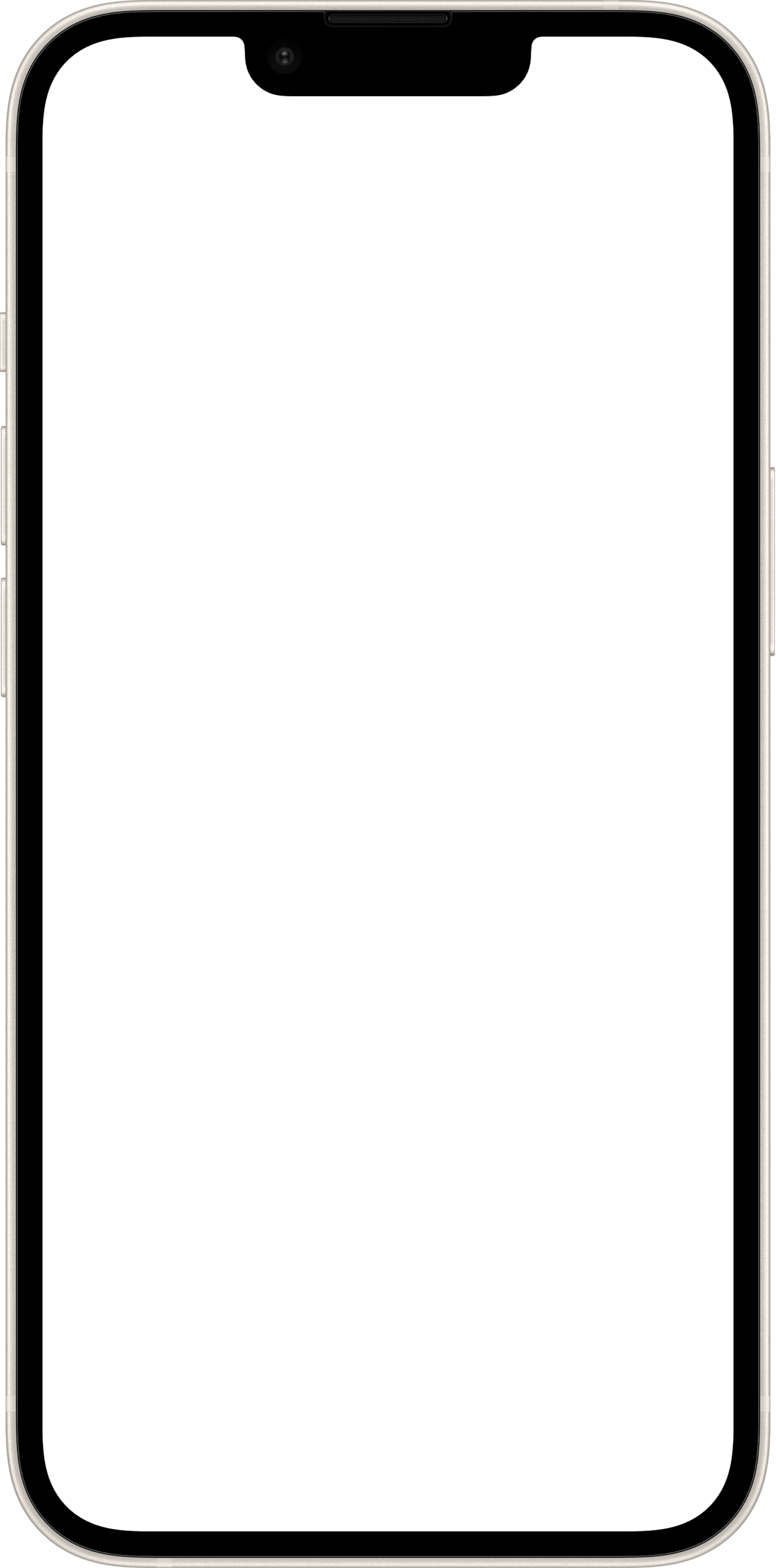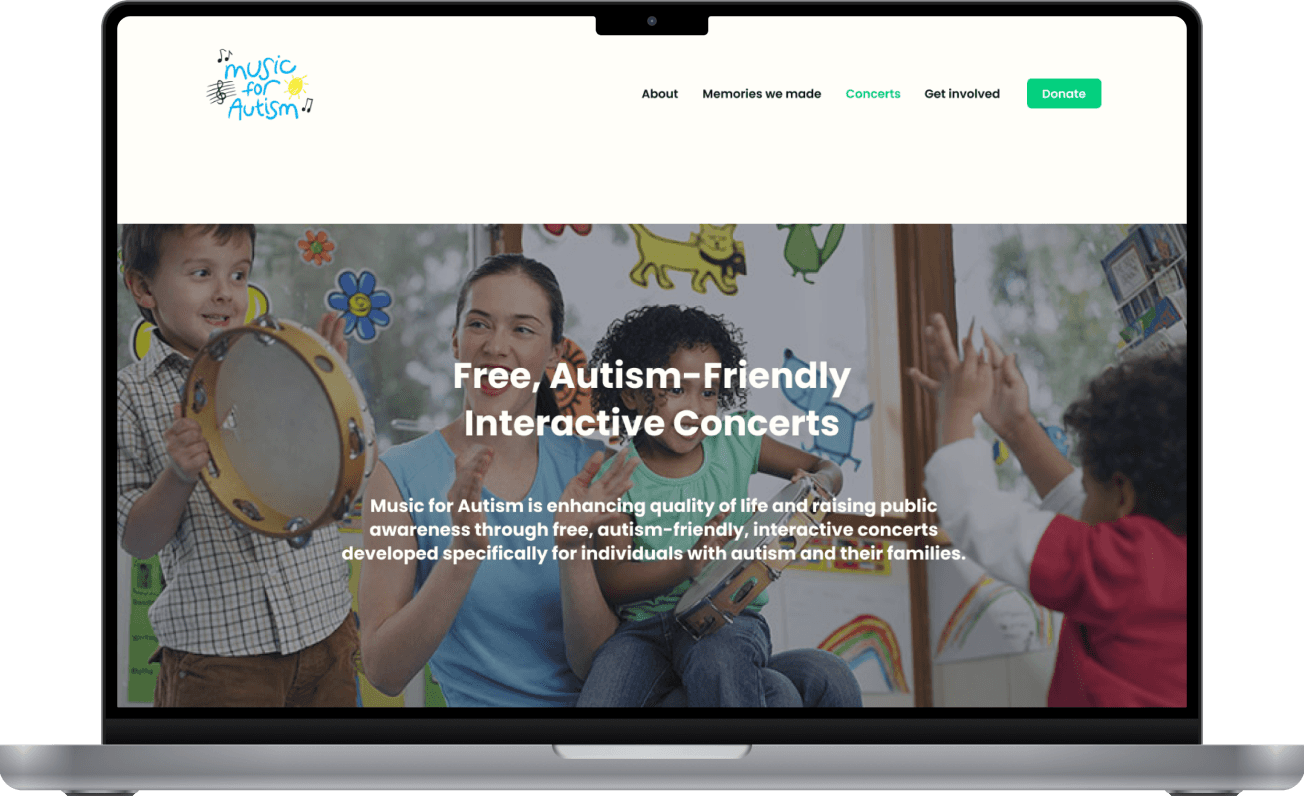Valance
Overview
Valance is a socially responsible investment app specializing in climate change for Millennials and Gen Z investors who want to take climate action and invest in sustainable industry for the long term.
My Role
Conducting secondary research and analysis
Designing lo-fi wireframe
Creating user persona, user journey and user flow
Creating a design system
Designing high-fidelity prototype for green market and donation pages
Leading weekly sponsor meeting presentation
Duration
4 Months
Team
Sunwoo Park
Amogh Ghapure
Sukyong Kwon
Jin Hee Jung
Guide
Roger Mader
Chriswell Lappin
Goldman Sachs
Problem Statement
How might we create an accessible platform for novice millennials and Gen Z who wish to invest in climate sustainability?
Highlight
Empowering Millennials and Gen Z to keep their interest in climate change and climate action through environmental sustainability investment.
Deliverables
Users can choose the specific climate issue they are interested in in the onboarding stage. Valance curates personalized stock lists based on their choice of issues.
We offer a green market, which is curated with only stocks and funds green industry. The app automatically shows the most relatable stock lists with your choice during the onboarding. The user can easily invest in the companies which work on the issues that the user is primarily interested in.
It also provides the users with an ESG rating, diversity, equity info, and sustainable activity report.
Through our research, we learned that our users are active community members and are not reluctant to help others. Therefore we designed a donation feature where the user can also support the climate action non-profit organizations.
The organizations are also carefully curated, users can have a tax benefit after the donation, and it helps the user to keep an interest in climate issues in the long term.
Background
My team and I began our research by looking into different characteristics of two young generations, millennials and Gen Z. Thus, how do they think about the current society and how their recognition of society has changed after experiencing the pandemic.
What I learned was that these two generations were notably different from older generations; They are more aware of social issues that are happening right now and feel the issues more deeply in their everyday lives. They also continue to engage in the actions through social media.
Research
My team chose 14 interviewees from their early 20s to early 30s from multiple countries because they are the perfect age range of target users and we wanted to know what young generations are mostly interested in globally. During the interview, I found out these interviewees also had less experience in investment and primarily worked in the non-financial field.
Semi-Constructed Interview
Color Coding
UX Opportunity
I was able to find more pain points and opportunities from millennials and gen z who are less experienced on investment and interested in sustainability. Based on the insights, my team and I embodied our initial challenge.
Climate change are the urgent issue that should be address more.
50% of millennials and Gen Z think climate change is the most significant current issue that should be solved.
Less investment experience.
Most young investors just start to invest after they get a job and are not used to investing.
Sustainable choice with sustainable products and brands.
Millennials and Gen Z are interested in using sustainable products and hope to keep investing in sustainable brands they consume.
UX Opportunity
From the research, my team and I defined a persona and the user flow that could be the most impactful. I refined the flow as five stages in order to specify the user's behaviors and goals while the persona using the platform.
Develop
With the insights gained from research and analysis, ideating features and building IA, we created low-fidelity wireframe with our initial idea.
Then, we conducted 14 user testing with the wireframe and iterated our features and UI design based on feedback from users.
Visual Design
Reflection
Takeaways
I received positive feedback from my supervisor on my design decision, especially the color coding of the issue tags. It made the user effortlessly recognize the issue related to the current market status. By collaborating with other designers in my team, I could work together seamlessly and efficiently to ensure we were on schedule.
Leading a weekly design sprint and presenting my process to a cross-functional team allowed the entire team to be on the same track. It was easier to update the design in a better direction based on the feedback from team members after the sharing session.
What I learned
Through the design process, I learned that asking multiple questions will help me to become familiar with the company's development goal. It pivoted to avoid the design incompatibilities that lead to an unsatisfying user experience.
Deciding the time-based information hierarchy and color coding the tags based on the stock market environment taught me design thinking is contextually-based on target users and their desired objectives.
Next Work







